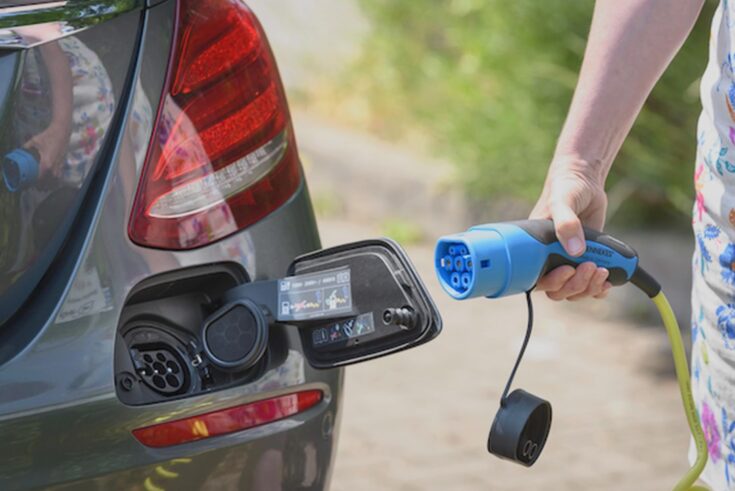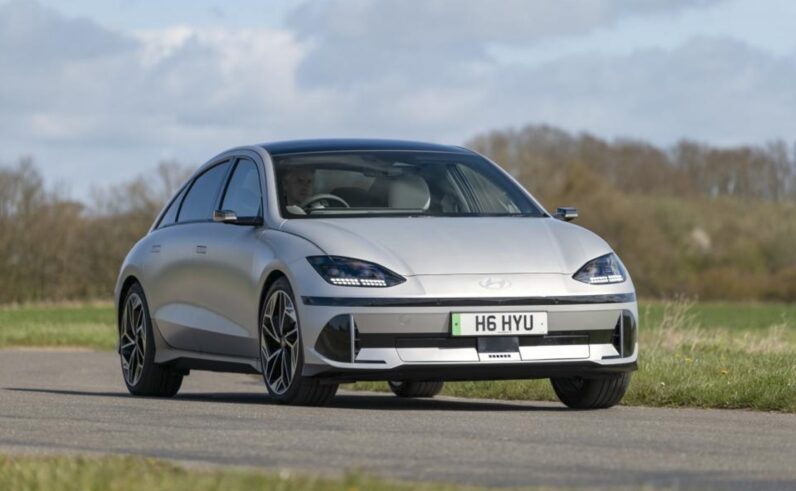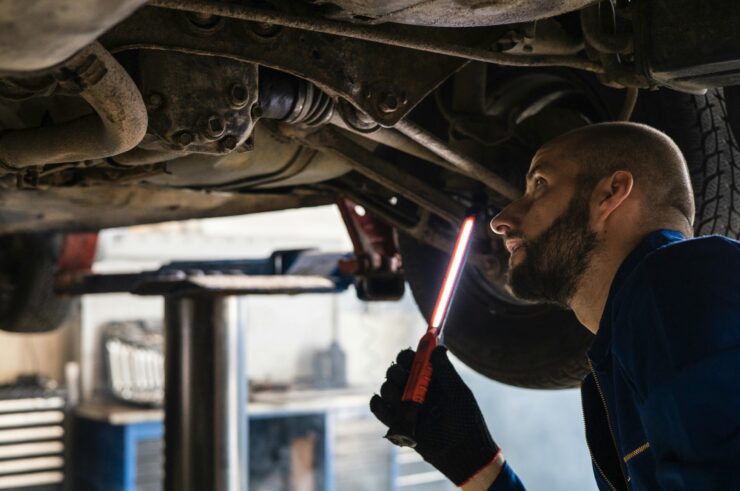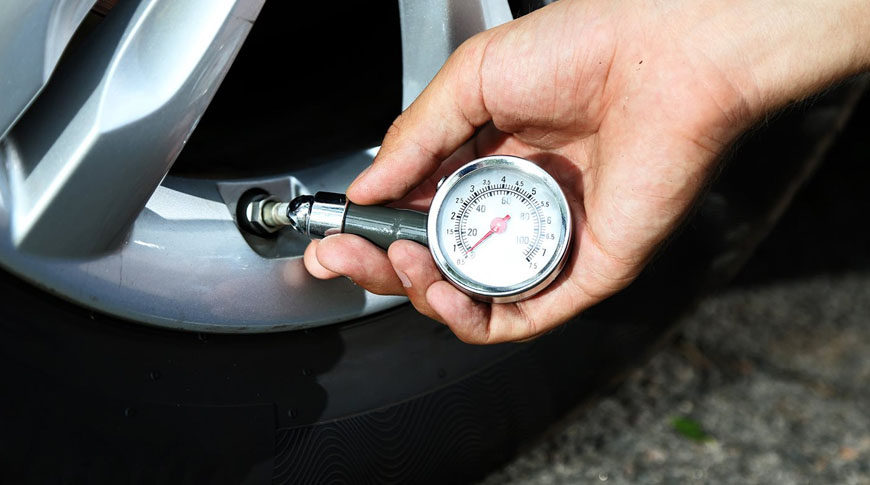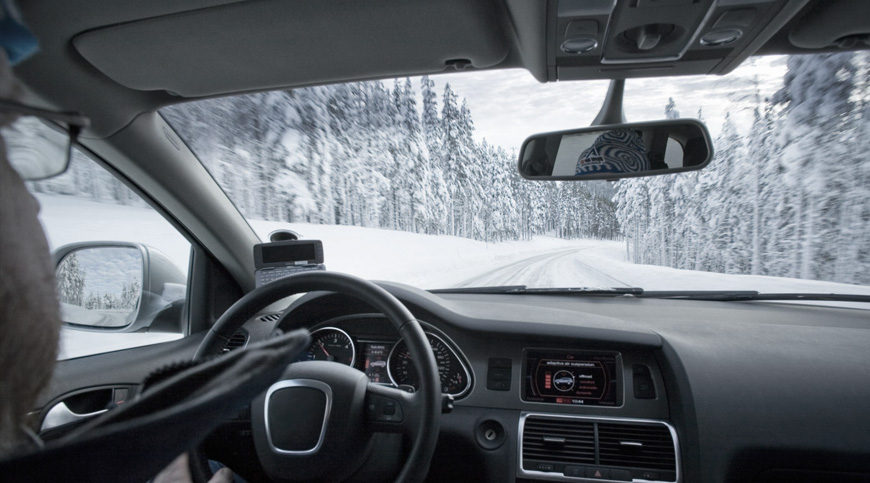Blog Posts
- by admin
- 0
Government says ‘no’ to new cash incentives for electric car buyers
A Lords Committee report backing car-makers’ calls for discounts to boost EV sales falls on deaf ears
The Lords’ recommendations were published in February 2024, and stated that “the Government should explore targeted grants to incentivise the purchase of EVs with a view of facilitating a list price under an appropriate threshold”. According to the report’s authors on the Parliamentary committee, such a move would stimulate a more affordable market for EVs, support moves towards price parity with internal-combustion vehicles, and could be used to help counteract the trend towards the large and heavy SUVs that have the worst environmental impact.
Those supporting the calls for a new package of incentives to replace the Government’s Plug-in Car Grant that was withdrawn in 2022, include the Society of Motor Manufacturers and Traders. SMMT chief executive Mike Hawes who has repeatedly called for what he recently termed “compelling fiscal incentives” to discount the cost of EVs for private buyers.
In its written response to the Committee published today, the government says it “disagrees with the recommendation” and will continue to focus on incentivising fleet users to choose EVs through the company car tax system.
“According to industry data, the purchase price premium of an EV – relative to an equivalent internal combustion engine (ICE) vehicle – has dropped from around 50 per cent in 2020 to around 40 per cent in 2023,” the response states. “With battery costs reducing and continued innovation, some external forecasts predict that some EVs could be around the same price to purchase as a petrol or diesel car by the end of the 2020s. The Government is targeting its incentives where they have the most impact and deliver the greatest value for money.”
Baroness Parminter, Chair of the inquiry said: “Whilst we welcome the Government’s acceptance of some of the recommendations in our report, it is particularly disappointing that it is not committing to incentivising the purchase of more EVs.” She also highlighted the government’s rejection of other measures, including the equalising of the VAT differential between public and domestic charging.
“Peers will keep urging the Government to do more, as otherwise the EV revolution is a non-starter”, she said.
Want the latest car news in your inbox? Sign up to the free Auto Express email newsletter…

- by admin
- 0
Hyundai IONIQ 6 named Scottish Car of the Year
HYUNDAI’S sleek IONIQ 6 electric saloon has been crowned Scottish Car of the Year.
In addition to the overall title, Hyundai received a second category award from the Association of Scottish Motoring Writers (ASMW) at the annual gala ceremony known as SCOTY. The KONA Electric won the Small/Mid-size EV class.
ASMW president Alisdair Suttie said: “We have never known a year so closely fought for category winners and the overall title. For the Hyundai IONIQ 6 to emerge as a clear winner is testament to how good it is as a car for families looking to embrace EV driving.”
Hyundai and Genesis UK president Ashley Andrew said: “We are delighted with this award from the Association of Scottish Motoring Writers. It marks another major title this year for the Hyundai range of vehicles.
“With the Hyundai IONIC 6 as Car of the Year and Best Large EV, and the all-new KONA as best Small/Mid-size EV, there’s a clear appreciation for our innovative product range.”
The IONIC 6 was the third EV to become Scottish Car of the Year, previous winners being the Jaguar I-Pace in 2018 and the Skoda Enyaq in 2021. Hyundai won the title with the i10 in 2014.
Mazda and Suzuki also received two category awards this year.
The Mazda CX-60 diesel was best Large SUV and the MX-5 sports car best Used Car under £15,000, while the Suzuki Swace topped the Family Car and Hybrid categories.
Bridge of Weir Leather was honoured for its sustainable tannery and the President’s Award went to fellow Scottish company Munro Vehicles for the rapid development of the Series M all-terrain EV.
Category winners: Small Car – Dacia Duster; Family Car – Suzuki Swace; Family SUV – Renault Austral; Large SUV – Mazda CX-60 diesel; Executive/Premium – Lexus RX450h; Performance – Kia EV6 GT; Utility/4×4 – Ford Ranger; Hybrid – Suzuki Swace; Small/Mid-size EV – Hyundai Kona Electric; Large EV – Hyundai IONIQ 6; Used Car under £15,000 – Mazda MX-5; Used Car over £15,000 – BMW 520d; Aftersales – Genesis; EV Innovation – BYD Blade Battery; Design and Innovation – Bridge of Weir sustainable tannery; Motability (selected from nominations by Macklin Motors) – MG HS; President’s Award – Munro Vehicles.
Article Courtesy of Greenock Telegraph
Columnist
- by admin
- 0
MOT tests could change under NEW government plan
MOT tests could be changed from every year to every two years under UK Government proposals.
It is also, due to improvements in vehicle safety, considering reducing the frequency of MOTs for older cars, vans and motorbikes.
UK Government consultation states: “We are considering if it is appropriate to move to testing every two years rather than every year, reflecting the progress in improving vehicle safety.
It adds: “At present, cars, light goods vehicles (including vans) and motorbikes must have a first MOT after three years and then annually thereafter.
The DfT said it is recognised changes will have an impact on the income of garages.
It said changing the date for a first MOT could cost garages across the UK more than £100m.
The consultation added: “Increasing the date at which a first MOT is required, will mean that the 23,400 garages approved as MOT test stations will lose revenue.
“Based on historical registration data combined with vehicle forecasts, increasing the date to four years would result in fewer annual tests, a range of 1.36 million to 2.97m fewer tests due to changes in future vehicle registration.
“Applying the various MOT fee to each vehicle type, this equates to an annual loss of revenue to garages of £56.3m to £123.6m.”
It is noted that there could be a further impact on garages if the change to the date of the first MOT leads to vehicle owners delaying servicing because many owners combine the servicing of their car with an MOT.
However, it is also noted that vehicles will still need to be maintained and are more likely to fail the MOT the older they are.
The consultation states: “The MOT test has been in place since the 1960s and the three-year threshold for the first MOT test since the late 1960s.
“The MOT test was first introduced to assure the safety of a vehicle, in practice the effectiveness of safety-critical components such as tyres and brakes. In recent years, the concept of roadworthiness has expanded to encompass vehicle emissions and effects on the environment.”
It has been noted that vehicles are safer now than before when MOT tests were first introduced.
The consultation states: “Since the 1960s there have been major advances in vehicle manufacture. Vehicles are better built, making them more resilient to wear and tear. There are also huge advances in systems providing safety information to the driver.”
Article Courtesy of Glasgow Times
Political Correspondent
- by admin
- 0
Tyre pressure checks can save lives
A leading road safety organisation is advising drivers to carry out basic tyre checks before setting off on their Bank Holiday trips this spring.
TyreSafe, the UK’s leading tyre safety organisation, is encouraging motorists to take a few minutes to check air pressure and overall tyre condition. Every year, large numbers of tyre-related breakdowns clog up Britain’s motorways, causing delays and tailbacks as Britons take to the road for a short Easter getaway.
Stuart Jackson, chairman of TyreSafe, said the extra luggage and passenger weight means that holidaymakers vehicles’ are often much heavier than normal, placing additional strain on the tyres. As a result it’s important to have the correct air pressure when making long journeys with heavy loads.
He said: “Spending just a few minutes checking your vehicle’s tyres could ultimately save you hours of hassle following a puncture or blow-out. However, what’s more important is that an unchecked tyre might be unsafe, putting the driver, passengers and other road users in very real danger.”
Driving on under-inflated tyres causes excessive heat build-up inside the tyre, which can lead to premature failure. Many vehicle manufacturers note that tyre pressure should be adjusted accordingly if travelling with heavy cargoes.
Copyright © Press Association
- by admin
- 0
Troubleshooting Anti-Lock Brakes
Over the river and through the woods was more dangerous back when cars had crummy bias-ply tires, rear-wheel drive and ordinary brakes.
- by admin
- 0
ABS has become pretty much standard equipment on most vehicles
This process repeats many times per second until the vehicle stops or you lift your foot off the brake pedal. The ABS computer does a power-on self test every time you cycle the ignition.
Archives
| M | T | W | T | F | S | S |
|---|---|---|---|---|---|---|
| 1 | 2 | 3 | 4 | 5 | 6 | |
| 7 | 8 | 9 | 10 | 11 | 12 | 13 |
| 14 | 15 | 16 | 17 | 18 | 19 | 20 |
| 21 | 22 | 23 | 24 | 25 | 26 | 27 |
| 28 | 29 | 30 | ||||
Popular tags
Categories
- Audios (1)
- Car Logos (33)
- Daily Inspiration (1)
- News (27)
- Resources (1)
